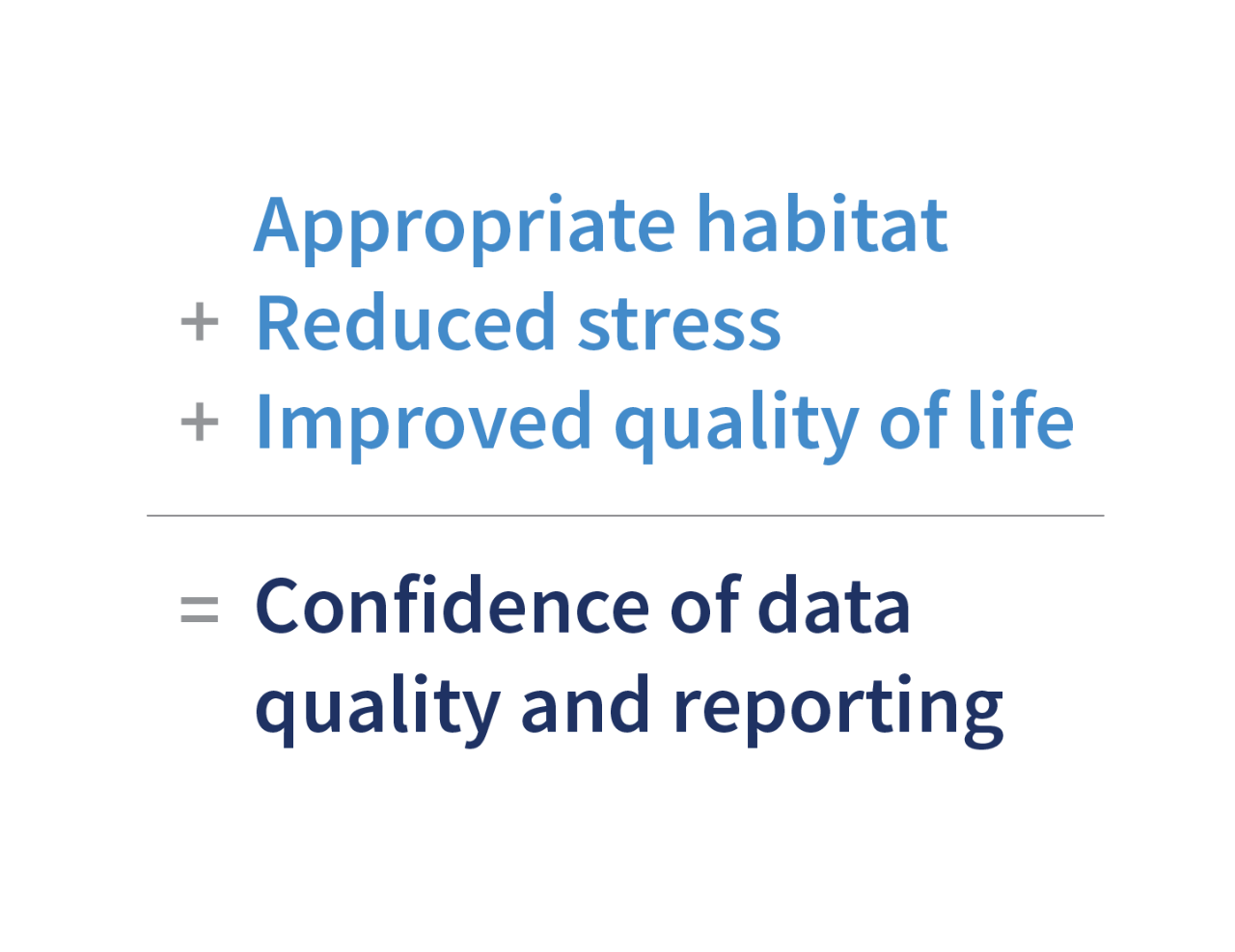Like many of you who visit this website, we care deeply about animals and strive to treat them humanely and respectfully – always.

Caring and Respect
Ensuring proper care and treatment of our research animals is the right thing to do and critical to our business.
A healthy research animal that is properly cared for will provide more reliable scientific results. Achieving the best possible results helps to ensure the safety of new medicines for patients, as well as for pets, livestock and other animals. To improve quality of life, we provide enrichment activities, socially arranged housing, and playtime for the animals in our care.

Focus, Commitment and Training
We employ more than 20 veterinarians with expertise and experience in ensuring the health and well-being of the animals. To help ensure animal welfare, a veterinarian is on call 24 hours a day, 365 days a year at each of our animal facilities. Our experienced, highly qualified operations managers and support staff focus exclusively on ensuring the safety and well-being of the animals, every day.
All Labcorp employees who work with laboratory animals complete extensive training to ensure proper management and care. This training includes:
- An interactive awareness module on Animal Welfare and our commitment to a Culture of Care.
- An overview of industry standards and all applicable regulations that govern animal care and use
- The unique needs of each species, including behavioral, psychological and nutritional
- How to humanely and safely handle the animals
- How to observe animals for signs of discomfort, pain, distress or health issues and then minimize them.
Meeting Requirements and Striving to Do More
We work diligently to ensure that we – and our suppliers – adhere to all applicable animal welfare government regulations. In our more than 30 years of animal research, we have maintained an excellent record of compliance with animal welfare regulations, including the European Council Directive 2010/63/EU, the U.S. Animal Welfare Act and the requirements set forth by the United States Department of Agriculture (USDA) and the U.S. Public Health Service Policy on the Humane Care and Use of Laboratory Animals.
European Union regulations, for example, mandate that all research involving animals conducted in Europe be vetted by government agencies to confirm that animal research is the only alternative currently available.
Did You Know?
Most animals that Labcorp works with are purpose-bred specifically for research. They are not wild caught or sourced from animal shelters. Our team of veterinarians audits the suppliers on a regular basis to help ensure humane treatment and infection-free mandates are upheld to eliminate factors that could alter the outcome of the research conducted.
Myth v. Fact
Fact: More than 95 percent of the animals used in basic biomedical research are mice and rats.* Rodents are the most frequently used species to test the safety of new medicines, although government regulations require some testing in non-rodent species.
Minipigs are beginning to replace the use of dogs in some types of research. Most research primates are macaques or marmosets, and these are used in relatively small numbers—about 0.05 percent of studies—helping enable many important medical advances such as the polio vaccine and life support systems for premature babies. The website Understanding Animal Research has more information about research using primates.
* EU statistical data on the use of animals for scientific purposes
Connect
Let's start a conversation
Contact Us